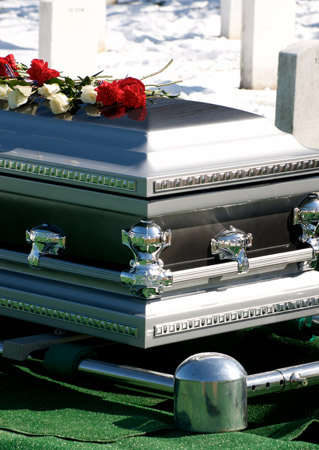Travel Essentials: Death Abroad
In the event of death abroad, the deceased’s embassy or consulate must locate and inform the next of kin. Sometimes discovering the next of kin is difficult. If the individual’s name is known, a passport application search can be done.
The embassy or consulate can also provide guidance to grieving family members on how to make arrangements for local burial or for return of the remains to the home country. Be aware that this can be an extremely complicated and expensive process. Disposition of remains is affected by local laws, customs, and facilities. Upon completion of all formalities, the consular officer prepares an official report based upon the local death certificate and sends it to the next of kin or legal representative in the deceased individual’s home country.
Exportation and Importation of Human Remains
Persons wishing to import human remains, including cremated remains, will have to meet the requirements of the country of export and the country of destination. Information regarding these requirements may be obtained from the relevant foreign embassy or consulate.
In addition to the foreign death certificate, it may be necessary to obtain special permits or clearances if the deceased is known or suspected to have died from a communicable disease requiring quarantine. These diseases include cholera; diphtheria; infectious tuberculosis; plague; smallpox; yellow fever; viral hemorrhagic fevers (Lassa, Marburg, Ebola, Congo-Crimean, or others not yet isolated or named); severe acute respiratory syndrome (SARS); and influenza caused by novel or re-emergent influenza viruses that are causing or have the potential to cause a pandemic.
When U.S. Citizens Die Abroad
Resources
The Department of State’s Bureau of Consular Affairs will locate and inform the next of kin and assist family members in making arrangements. Consular officials will prepare a Report of Death based on the local death certificate. The consular officer takes responsibility for the personal estate of Americans who have died if there are no other legal representatives present.
In case of emergencies abroad, the Office of Overseas Citizen Services in the Bureau of Consular Affairs may be contacted from 8a.m.–8p.m. eastern time, Monday through Friday, by calling (888) 407-4747 from the United States or Canada or (202) 501-4444 from overseas. For emergency assistance after working hours or on weekends and holidays, call the Department of State switchboard at (202) 647-4000 and ask to speak with the Overseas Citizens Duty Officer.
Copyright © 1993—2025 World Trade Press. All rights reserved.

 China
China 